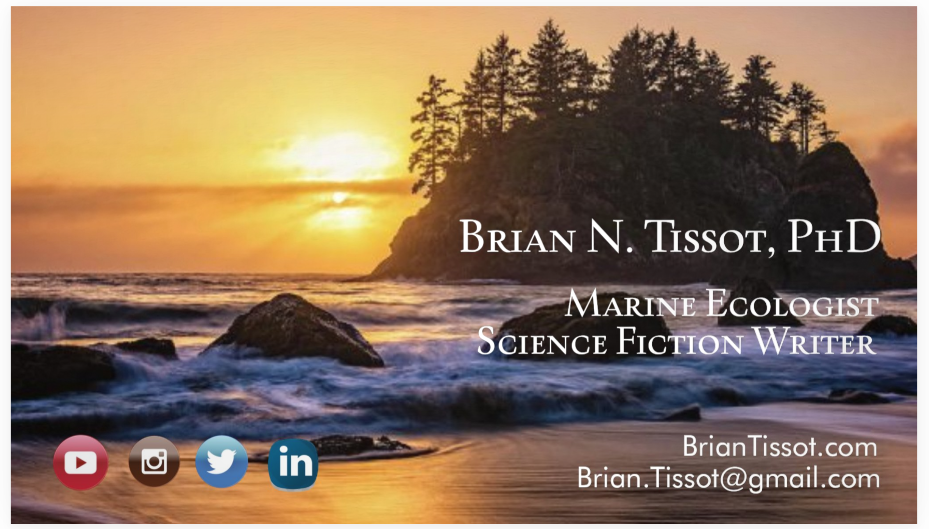Brian Tissot, Blue Frontier Podcast, 2022
Dr. Brian Tissot, Professor of Marine Ecology, The Detail Podcast on Spotify, 2021

Dr. Tissot is a professor of marine ecology and director of the Marine research lab at Humboldt State University. His new science fiction book, Songs of Thalassa, Tells the story of a native Hawaiian woman’s quest to surf the biggest know wave in the universe. His is passionate about storytelling, and especially raising awareness to real life issues through story. He is also and avid and lifetime surfer. [listen]
Dr. Brian Tissot, aka ‘Dr. Abalone,’ on Marine Biology, Surfing, and Counter-Culture
NOAH, 2020

It’s so easy to be busy, engaged and distracted by society. There’s so much cool stuff going on. But sometimes it’s really important to get outside, disconnect, and see where that takes you. I’m not talking about minutes or hours, I’m talking about spending days alone and fasting away from civilization. It’s called a Nature Fast. In addition to cleansing the body, it’s about letting the mind slow down and be open to nature. That’s the thing with surfing: you’re so immersed in the act of being there, the other shit melts away. The realization is that we are all connected here, the planet, living creatures, and us. We’re all part of the same thing. It’s easy to forget that. [read more]

Tiny Monsters in the Sea
Hakai Magazine, 2019
In the mid-1980s, Brian Tissot was a graduate student studying black abalone on two islands off the California coast south of San Francisco. He was a dedicated surfer, diver, and adventurer, and looked the part—a bearded, tanned, 1980s surfer dude. [read more]
Surveying the Sea
HSU Magazine, 2015

“MPAs are a conservation tool that has been shown globally to be very important, but there’s a need to consider every case on its own,” says Brian Tissot, director of HSU’s Marine Lab and the newly-established Humboldt Marine & Coastal Science Institute. “How it affects the people, locally, is equally important. Ideally, there would be a balance that conserves nature without displacing or disrupting the lives of the people that rely on it.” [read more]
Saving Nemo
WSU Magazine, 2012

…Tissot, a marine scientist, has become a key figure in the fishery. He has documented the impacts of aquarium collectors and the ability of the reef to recover when areas are closed to collecting. He and his colleagues have shown how protected areas can “seed” unprotected areas with fish and larvae. In the first study of its kind, they mapped genetic connections between fish and their offspring miles away—a needle-in-a-haystack accomplishment writ across tens of thousands of square miles of water. [read more]
Unfilled promise of Marine Protected Areas
Yale Environmental 360, 2011

Some of the most interesting work is being done by scientists at a marine reserve off the western coast of the Big Island of Hawaii. The research is being led by Brian Tissot, a Washington State University marine ecologist who’s been studying a 10-year-old Hawaiian state reserve since its inception in 2000. [read more]
The Wildlife: Marine Aquarium Trade, Brian Tissot
Laurel Neme (podcast), 2010

Brian Tissot, marine ecologist, discusses the marine aquarium trade. He tells “The WildLife” host Laurel Neme how the United States, as the world’s largest importer of marine ornamental species for the aquaria, curio, home decor and jewelry industries, has an opportunity to leverage its market power to promote more sustainable trade and reduce the effects of this trade on coral reefs worldwide. [hear the podcast]



